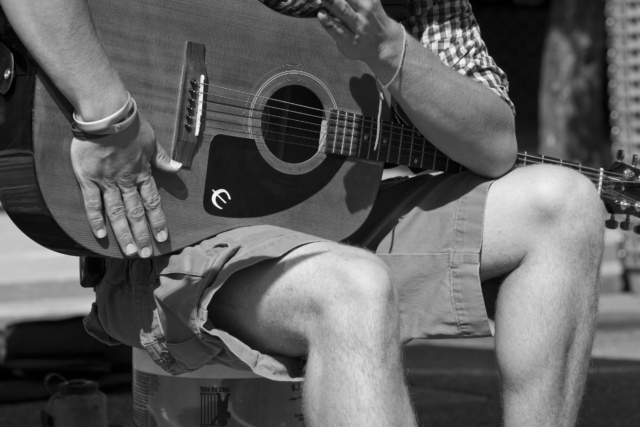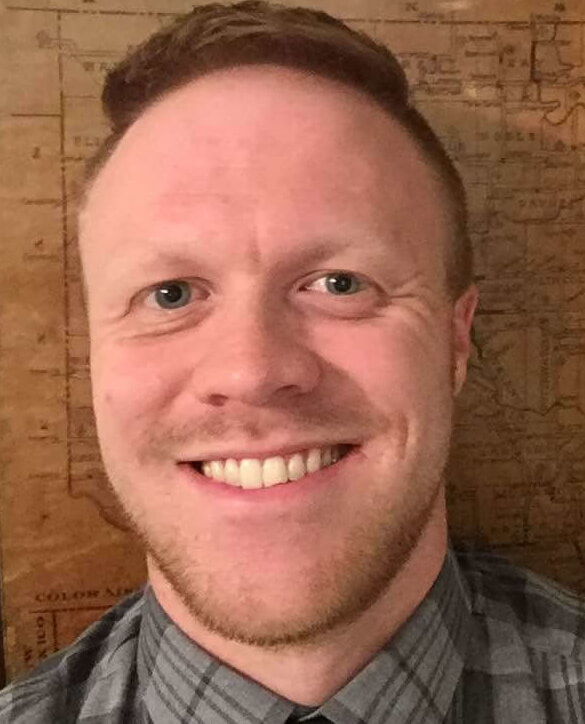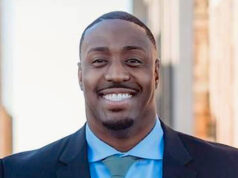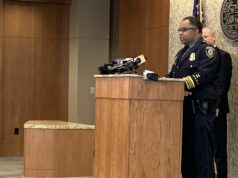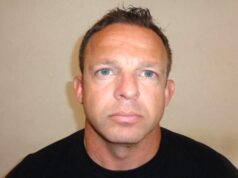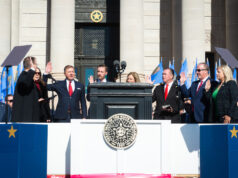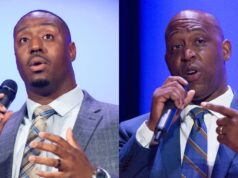I am, admittedly, an almost shockingly stereotypical white guy.
I can count on one hand the amount of black friends I have had in my life. I have always felt somewhat uncomfortable being around people outside my own race. This is not because I was scared of them or had anything against them, but because I felt everything about me screamed, “OBVIOUSLY PRIVILEGED WHITE GUY.”
In other words, probably the most I have ever suffered is feeling guilty about how little I have suffered.
Before a few years ago, the only discussions I had ever had about race were as a kid in history class, learning about slavery. I do also vividly remember reading To Kill a Mockingbird and thinking, “I can’t believe our country used to be like this. I’m glad that is all behind us now.”
Over the past several years, I have had to start questioning that belief along with most of the country, as issues of race seem to be an almost daily topic in our national news cycle. I started to become concerned but had no idea what to do about it, and I only had white people in my life to discuss it with.
Thankfully, I now have a forum where conversations about race can happen openly and honestly among people of all colors.
‘Overwhelmed and ignorant on the issue of race’
Almost exactly one year ago, I was invited to a re-occurring monthly breakfast designed to create an open space for men to come together and discuss racial reconciliation.
These breakfasts were the idea of Justin King, an Oklahoma City attorney, after he attended a lunch in November 2014. That gathering was intended to discuss the unrest in Ferguson, Mo., but quickly shifted to discussing race relations in Oklahoma.
“That was kind of my awakening,” King said of his 2014 experience. “I had always felt overwhelmed and ignorant on the issue of race.”
Follow NonDoc:
Wayland Cubit, a lieutenant with the Oklahoma City Police Department, spoke at the lunch. An attendee asked him what people could do to have an impact on racial reconciliation. He suggested sitting down with people who did not look like them, who did not necessarily share their beliefs, and with whom they may normally never interact. Lt. Cubit instructed just to get together and hold conversation.
King decided to take that suggestion and put it into action.
“After having my heart broken in November 2014, I kind of just started praying, ‘How can more of the community of white privileged people have their hearts broken on this issue?’,” he said.
It has been my honor to be involved in these conversations, and I feel indebted to King for inviting me to them after meeting briefly only once.
‘Some people have cleats and some people don’t’
Cubit and his fellow officer, police Lt. Jermaine Johnson, are both black men working for the OKCPD. This puts them in a position they refer to as “dual citizenship.” I asked them how these conversational breakfasts had affected them, and the first thing they said seems obvious to me now, but it was something I had never considered before.
“The conversation about race is not a new conversation for either of us,” Cubit said. “We have been involved in these conversations our entire lives, so it’s not new. It’s actually kind of tiring.”
I recognize it is not easy, as a white person, to go out and find a black stranger and ask them to have lunch so you can talk about race.
Luckily, there is an initiative happening in OKC to make that process easier.
Consider signing up for an upcoming event with DinnerTableOKC.com. This project works to bring people together to have open conversations, no matter what their current beliefs are.
— Aaron Askew,
NonDoc commentator
Although it is not new for them, one aspect of these particular discussions stood out as refreshing to Johnson.
“It was absolutely a first for me as far as white people seeking to have that conversation with me,” he said.
Johnson also expressed how surprised he was to discover how many white people were so blind to the experience of black Americans.
“I had no idea that white America was so unaware of the things that were going on in the black community,” he said. “I think some of the perceived racism that was occurring (toward black people) was actually just white people being completely unaware.”
Cubit said it has been encouraging to have people who do not have to face being black in America try to understand his perspective.
“To see someone who has been walking in privilege but unaware of that privilege want to talk about it is refreshing, because most white people don’t have to address the issue,” he said. “Not to feel guilty for that privilege, but understanding that, in a 100-yard dash, some people have cleats and some people don’t.”
I asked Johnson if he ever felt frustrated during our morning discussions.
“It’s actually the opposite for me,” he said. “I am looking for pushback.”
Johnson continued to explain most people who attend already are open-minded, and he feels the atmosphere is often too agreeable.
“If you were to judge Oklahoma by the people who show up to those breakfasts, you would think these are just the most understanding people,” he said. “I want people who are unaware and disconnected from this issue — who think that whites are actually being discriminated against more than blacks — to show up.”
I let him know I could find him plenty of those people, and he enthusiastically asked me to bring them.
“Who’s to say Wayland and I are right about how we feel? I would like to challenge their perspective and I would like to have mine challenged as well and see if we can come to a common ground,” Johnson said.
Don’t be sorry, just listen and acknowledge
I know some white people have resentment that they feel they are now supposed to apologize for simply being white. I do not believe that is what anyone in the black community is asking us to do. I think they are asking simply to listen and not ignore.
So let me make this plea to my fellow Caucasians:
If you are not actively engaging in conversations about race with people who do not look like you, it is impossible for you to have a valid opinion on the subject. If you are just ignoring the issue altogether and choosing complacency, that might be even worse.
It is easy to become overwhelmed with the plight of racial tensions in America and seemingly impossible to figure out how to fix them. I encourage you to start by focusing on your own neighborhood, place of work, church, etc. Clearly, there is a problem, and both sides of the issue need to work together to figure out what changes can be made to combat the tension.
If we do not do our part to work on the solutions, we are all contributing to the endless cycle of broken race relations in America since the 1600s. Unfortunately, the To Kill a Mockingbird days are not as far behind us as I had thought for so long.
Are we all willing to accept saying that in another 50 years from now?
I hope not.








